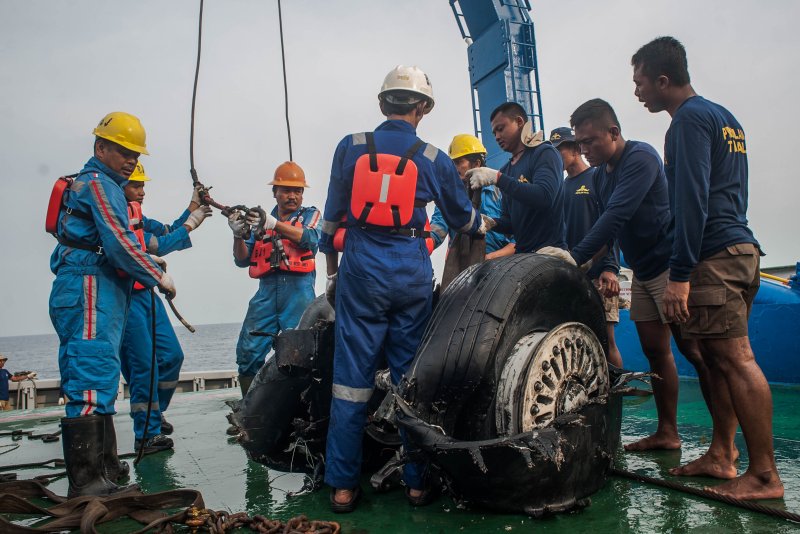Crash investigators say faulty sensors caused the Lion Air plane to go into a steep dive on previous flights and should have been grounded. Photo by Fauzy Chaniago/EPA-EFE
Nov. 28 (UPI) -- The Lion Air Boeing 737 MAX 8 that crashed off Indonesia last month was not airworthy and should have been grounded, crash investigators said Wednesday.
Pilots experienced several problems with the aircraft in the days leading up to the Oct. 29 crash, investigators said -- including a faulty airspeed sensor, altitude indicators and angle-of-attack sensors that should have grounded the plane.
Officials believe the bad sensor readings caused the plane to go nose down on one prior flight, which the pilot solved by switching off the autopilot.
The pilot reported the problems and engineers performed maintenance checks, but cleared the airliner for the doomed Flight 610 from Jakarta to Pangkalpinang. The plane went into the Java Sea immediately after take-off and killed all 189 aboard. Before crashing, the pilot asked to return to the airport, but couldn't. Investigators say the plane hit the water at 450 mph.
"In our opinion, the pilot should not have flown the aircraft in its condition," investigator Nurchahyo Utomo said.
Analysis of the flight data recorder showed the anti-stall system pushed the plane's nose down, and pilots wrestled with the flight stick more than a dozen times in the 11-minute flight.
The exact cause of the crash hasn't been determined. Crash investigators will attempt to reconstruct the crash at a Boeing facility in Chicago.
"In our view ... the plane was not airworthy," Utomo said. The airliner was just a few months old.
The cockpit voice recorder has not yet been found.
Boeing has come under fire from airline safety experts and pilot groups for failing to disclose problems with the maneuvering characteristics augmentation system, or MCAS, until after the accident.















